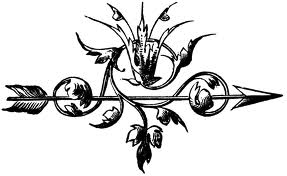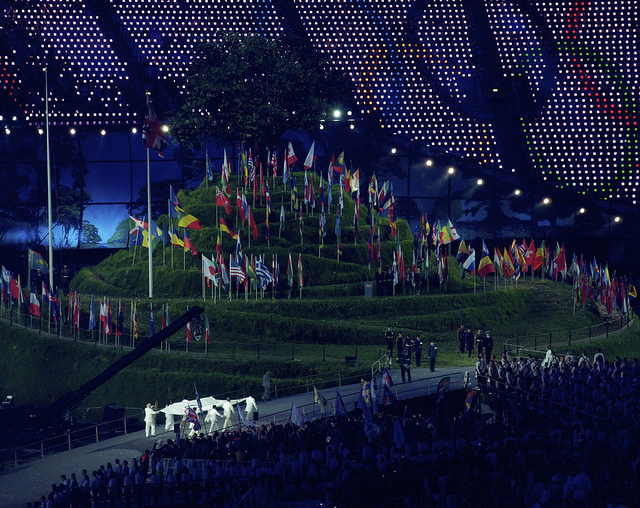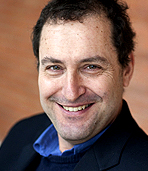In Britain, this (supposed) summer has seen the most Union Jacks for quite a while. The Olympics, preceded and amplified by the Jubilee, dominate our media scapes, but they also inhabit our daily physical existence. Some symbols make an impact, others don’t. With patriotic passions running high and flag-themed dresses popping up everywhere, join us in documenting your visual experience of this event. Tweet your photos of Olympic nationalism at #olympicsnationalism. Come on, show us what arrests your attention, get your phone out and snap a shot!
Author Archives: SEN Journal
Open to the public: “The Story of the Government Art Collection”
 As part of the series on “Art and Nationalism in London Museums”, we’ve been looking at the ways in which museums tell a story about ‘who we are’. Away from the masses, another less public story of who we are can be observed in the “The Story of the Government Art Collection” in the Pat Matthews Gallery, The Whitechapel Gallery. For the period, 3 March-2 September 2012 the general public has the chance to peek into this elite domain, hear the story of the art which the state sees as appropriate to accompany its endeavor.
As part of the series on “Art and Nationalism in London Museums”, we’ve been looking at the ways in which museums tell a story about ‘who we are’. Away from the masses, another less public story of who we are can be observed in the “The Story of the Government Art Collection” in the Pat Matthews Gallery, The Whitechapel Gallery. For the period, 3 March-2 September 2012 the general public has the chance to peek into this elite domain, hear the story of the art which the state sees as appropriate to accompany its endeavor.
http://whitechapelgallery.org/exhibitions/the-story-of-the-government-art-collection
Nationalism and the Olympics: Reflections on the opening ceremony
As part of our current focus on sport, SEN Journal: Online Exclusives is delighted to present an exclusive commentary on nationalism and the olympics by Steven J. Mock.
They were a strange sight in the parade of athletes during the Opening Ceremonies of the 2012 London Olympics, stuck between Iceland and India: the “Independent Olympic Athletes”. And I was reminded of Ernest Gellner’s observation that having a nation in the modern world is akin to having a nose and two ears; sure, it’s possible one might lack one of these things, but unnatural, the result of an extraordinary tragedy. These three athletes (apparently from the recently dissolved Netherlands Antilles) compensated for their disability by making the most boisterous entrance they could, dancing their way into the stadium then pantomiming their events throughout the procession. Making light of their absurd condition, they were transformed from piteous to heroic objects: Oscar Pistorius had overcome his lack of legs to become an Olympian; these people had overcome their lack of a nation.
Exclusive Preview: Olympic Bidding, Multicultural Nationalism, Terror, and the Epistemological Violence of ‘Making Britain Proud’
In celebration of the London 2012 Olympics, SEN Journal: Online Exclusives is delighted to present a selection of exclusive previews on the theme of nationalism, ethnicity and sport over the next few weeks.
By focusing on London’s 2012 olympic bidding, our first article by Mark Falcous and Michael Silk explores the relationship between British nationalist identity politics and sport, terrorism, place re-imagining, mega-event bidding, and corporate neo-liberalism.
Interview with Dr. Daniele Conversi
SEN Journal: Online Exclusives would like to present the following interview with Dr. Daniele Conversi, the Ikerbasque Foundation Research Professor at the Universidad del País Vasco (Prosoparlam). He was a panel speaker at the 2012 ASEN Conference.
Vesselina Ratchev and Karen Seegobin interviewed Dr. Conversi at the 2012 ASEN Conference, held at the London School of Economics and Political Science on 27-29 March, 2012.
1. What are the main themes you’ve been working on this year?
I have been working on modernism in relation to nationalism, i.e. whether modernism can be considered as the dominant ideology of modernity and whether it is an ideology at all and how it reads with nationalism. Moreover, as my main project, I am looking at less popular concepts such as that of cultural homogenisation and how states have used cultural nationalism to impose common cultural values from the French Revolution until 1914 (or maybe later). I wouldn’t touch the inter-war period too much but might look a little bit into it, then ask how this cultural homogenisation interacts with globalisation in the neo-liberal world, of course using my own definition of globalisation.





